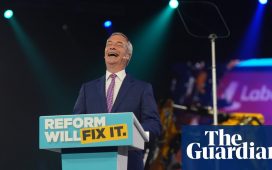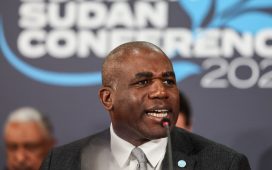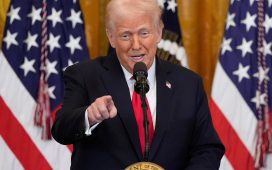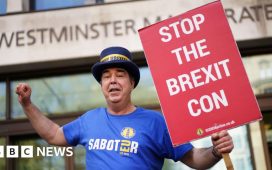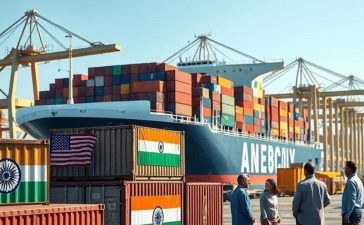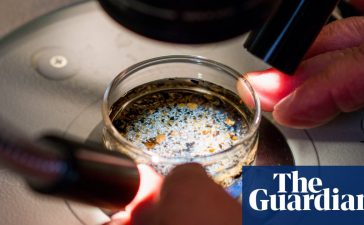Lack of ‘female perspective’ in No 10 created problems with Covid policymaking, inquiry hears
O’Connor presents an extract from MacNamara’s witness statement in which she said the lack of a “female perspective” in No 10 created a problem in Covid policymaking. She suggests there was more focus on issues like shooting and football than domestic abuse or pregnancy as a result.

Key events
-
How Boris Johnson wanted to ‘dead cat’ Covid in autumn 2020 because he was fed up with issue
-
Johnson asked scientists about ‘special hairdryer to kill Covid’, says Cummings
-
Sunak ‘quite sceptical’ about paying compensation to workers who had to isolate, inquiry told
-
Kate Forbes adds to pressure on Sturgeon by saying she kept all her Covid WhatsApp messages
-
Cummings claims Johnson’s wife Carrie exacerbated his indecision – and PM sometimes wrongly blamed her for U-turns
-
Johnson ‘rarely accepted that to govern is to choose’, MacNamara says
-
Getting No 10 to focus on domestic violence ‘far too difficult’ during Covid, says MacNamara
-
Lack of ‘female perspective’ in No 10 created problems with Covid policymaking, inquiry hears
-
MacNamara resumes giving evidence to Covid inquiry
-
MacNamara says situation that led to her Partygate fine ‘much more complex’ than reports suggest
-
MacNamara says Matt Hancock was regularly telling No 10 things ‘they later discovered weren’t true’
-
Johnson objected to regular meetings with first ministers because it would make UK look like ‘mini EU’, inquiry hears
-
Shadow cabinet ministers sometimes got more chance to question science advisers than cabinet did, inquiry hears
-
MacNamara says hundreds of civil servants, and ministers, now think they may have broken Covid rules
-
MacNamara says she does not think there was any single day when Covid guidance was fully followed in No 10
-
MacNamara says Cummings’ ‘misogynist’ abuse partly response to her blocking his attempt to cover up how he sacked aide
-
Women working in No 10 felt ‘invisible’ because of macho culture, inquiry hears
-
MacNamara says ‘superhero bunfight’ culture at No 10 would never have happened under Theresa May
-
No 10 had to ‘make up’ plan for what would happen when PM incapacitated, inquiry hears
-
MacNamara concerned about ‘absence of humanity’ being feature of government’s response to Covid
-
MacNamara suggests, once No 10 realised lockdown necessary, it could not have happened faster ‘in safe way’
-
Matt Hancock assured cabinet ‘time and time again’ he had plan to deal with Covid, inquiry hears
-
MacNamara tells inquiry she was concerned about Johnson’s ‘jovial tone’ about Covid threat in early March 2020
-
Helen MacNamara tells inquiry Cabinet Office made it ‘extraordinarily difficult’ for her to access past Covid paperwork
-
Dowden refuses to say it was shocking for Johnson to describe Covid as ‘nature’s way of dealing with old people’
-
Oliver Dowden urges people to wait until Boris Johnson presents his side of the story at Covid inquiry
How Boris Johnson wanted to ‘dead cat’ Covid in autumn 2020 because he was fed up with issue
Boris Johnson is credited with introducing the world to the notion of the “dead cat” strategy. The phrase itself came from Johnson’s friend Lynton Crosby, the Australian political consultant, but it was Johnson who made the term famous when he wrote about it in the Telegraph 10 years ago. Now anything in politics that even looks vaguely like a distraction strategy is described as a “dead cat”.
According to Dominic Cummings’ witness statement, in the autumn of 2020 Johnson said he wanted to “dead cat” Covid because he was fed up with the issue. Cummings told him (rightly) this would never work.

Johnson asked scientists about ‘special hairdryer to kill Covid’, says Cummings
Boris Johnson asked the top scientists Sir Chris Whitty and Sir Patrick Vallance if Covid could be destroyed by blowing a “special hairdryer” up the nose, according to Dominic Cummings in his witness statement to the Covid inquiry. Aletha Adu has the story.
Sunak ‘quite sceptical’ about paying compensation to workers who had to isolate, inquiry told
Rishi Sunak, the then chancellor, was “quite sceptical” about the case for paying compensation to people who missed work because they needed to isolate because they had Covid, the inquiry was told.
David Halpern, the former head of the behavioural insights team, made the comment in an email shown during the hearing.
Asked about the comment, Halpern said he did not talk to Sunak himself about this, but that he did talk to Treasury officials. He said it was the job of the Treasury to be reluctant to spend public money. He said he thought the Treasury would not agree to making sick pay more generous, because that would involve a “deadweight” cost, with more generous payments going to people who would comply with Covid isolation rules anyway. But he said he thought the Treasury would be more open to hardship payments to the low-paid, administered by local authorities.
The inquiry has now finished for the day.

Kate Forbes adds to pressure on Sturgeon by saying she kept all her Covid WhatsApp messages

Severin Carrell
Kate Forbes, the former Scottish finance secretary under Nicola Sturgeon, has said she had kept all her WhatsApp messages from the Covid pandemic because “it was clear [there] would be an inquiry” into the government’s handling of the crisis.
Forbes, a noted critic of Sturgeon’s who narrowly lost the Scottish National party leadership election to Humza Yousaf, further increased pressure on Sturgeon to explain whether or not she had kept her messages. It has been reported most or nearly were deleted.
Sturgeon, the former first minister was asked four times yesterday whether she had deleted the messages, and refused to say. She acknowledged she would disclose that to the UK Covid inquiry: “I will be very clear to the inquiry what I hold and what I don’t hold and why that is the case.”
Speaking to reporters at Holyrood on Wednesday, Forbes said: “I think it’s incumbent on each of us to give an account for our own actions and our own decisions.”
Forbes’s intervention also raises further questions about Yousaf’s assertion earlier this week that Scottish government policy required the deletion of old WhatsApp messages every 30 days. Despite claiming that policy was in place, Yousaf has said he also kept all his messages.
Forbes said:
Well, I suppose my approach has been that where something is relevant to my role as minister, I have retained it.
[It] is really critical that the Covid inquiries provide answers to all those that were affected during the Covid years. And I think that calls for the greatest possible source of information, correspondence and evidence, and so on.
At the Covid inquiry David Halpern, the former head of the Behavioural Insights Team, is giving evidence. Asked for his reaction to Dominic Cummings breaching lockdown rules when he took his family from London to County Durham, and then went on his eyesight-testing trip to Barnard Castle, Halpern said it was “atrocious”.
He said countries could either have a principles-based approach to dealing with Covid (Japan was an example – it told people to avoid the three C’s, crowds, closed spaces and close contact), or a rules-based approach. The UK had a rules-based approach. Halpern said, if rules were broken, there should be consequences. But the Cummings episode blew a hole in that because he was subjected to no sanctions.
But Halpern said the one positive was that, after the Cummings affair, most people continued to follow the rule. That was because people were more keen to follow the example set by their neighbours, co-workers and fellow commuters than someone in Downing Street, he said.

Cummings claims Johnson’s wife Carrie exacerbated his indecision – and PM sometimes wrongly blamed her for U-turns
The Covid inquiry has published the text of Dominic Cummings’ witness statement. It runs to 114 pages, and is not easily searchable.
Cummings was in part forced out of No 10 because he lost a power struggle with Boris Johnson’s wife, Carrie (still his fiancée when Covid struck in 2020), and, although this feud did not come up in the evidence session yesterday, in his witness statement Cummings restates his claim that she was a negative influence on the PM. He claims that she exacerbated Johnson’s indecision problem. But he also claims Johnson himself sometimes blamed her unfairly for U-turns for which she was not to blame.

In this passage Cummings is referring to WhatsApp messages about Carrie published last month.

Severin Carrell
Scottish Labour has significantly increased its lead over the Scottish National party, taking a six-point lead over its rivals, according to a respected academic survey from the Scottish Election Study.
Its quarterly Scoop poll put Labour on 38% and the SNP on 32%, after don’t knows were removed, giving Labour its largest lead since 2010 and appearing to confirm a consistent rise in support for Keir Starmer’s party in Scotland.
The Scoop data suggests undecided voters are switching to Labour, as have a fifth of SNP voters, 38% of Liberal Democrat voters and nearly a fifth of Conservative voters. Two-thirds of Scottish voters expect Labour to win the next general election.
The poll, conducted by YouGov, was carried out in late October after Humza Yousaf’s first national conference as SNP leader, where he unveiled a council tax freeze, and after his party’s devastating defeat in the Rutherglen and Hamilton West byelection.
Unfortunately for Yousaf, Scoop found voter allegiance to the SNP has slipped significantly: only 55% of voters who backed the SNP in the 2019 general election plan to at the next election. The Tories fared far worse: only 48% of their voters will back them again.
The Scottish government’s reputation among voters has also fallen, YouGov found. It had a minus 20 satisfaction rating, although that remains far better than Rishi Sunak’s administration in London. The UK government’s satisfaction rating was an Arctic -68.
The Scottish Election Study is based at the University of Edinburgh and funded by the Economic and Social Research Council.
Heather Hallett, the chair, asks a final question. She wants to know what powers special advisers have.
MacNamara says in theory special advisers cannot direct civil servants. She says in practice they can, if a special adviser asks for something on behalf of the PM. But she says during this period sometimes advisers were, from their own initiative, asking civil servants to act.
And that’s the end of MacNamara’s evidence.
Johnson ‘rarely accepted that to govern is to choose’, MacNamara says
O’Connor quotes from another passage in MacNamara’s witness statement. In it MacNamara said:
The prime minister rarely accepted that to govern is to choose. He really did want it all and changed his mind often.
The decision-making swung between two extremes, the prime minister’s undoubted liberal instincts and then the extremes of shutting everything down, when in reality all of the discussion and debate and choices were in the middle.
O’Connor turns to schools. He says that, in her witness statement, MacNamara says that, after the permanent secretary at the Department for Education was forced to resign over the exam grading fiasco, she was told by Simon Case, the cabinet secretary, that Boris Johnson intended to ensure that Gavin Wiliamson, the education secretary, would also have to move at some point soon.
O’Connor says MacNamara also raised the issue of whether PPE was designed to fit women’s bodies. She addressed this in her witness statement.

MacNamara says this issue eventually got raised by the PM in a meeting. She says she thinks a colleague persuaded the PM to raise this issue because that was the only means of getting a response.
Getting No 10 to focus on domestic violence ‘far too difficult’ during Covid, says MacNamara
MacNamara says she thinks more people will have been harmed as a result of domestic abuse during lockdown. An email is shown in which she said: “It is very difficult to draw any conclusion other than women have died as a result of this.”
O’Connor shows another extract from her witness statement addressing this. In it MacNamara says it was “far too difficult” to get colleagues in No 10 to focus on domestic violence.

UPDATE: MacNamara said:
People don’t want to think about these things, so you don’t want to think that awful things happen to children and partners and parents in their own home.
If you are a more experienced civil servant … you have a different sense of these things and I think it goes to who is involved and advising in decision-making, and are they able to bring the full gamut of what the state actually knows about what sometimes happens.
I feel that it was quite lopsided at this point. We were looking at harm through a very narrow lens without realising that of course there can be all sorts of consequences of other things you can’t see.
Lack of ‘female perspective’ in No 10 created problems with Covid policymaking, inquiry hears
O’Connor presents an extract from MacNamara’s witness statement in which she said the lack of a “female perspective” in No 10 created a problem in Covid policymaking. She suggests there was more focus on issues like shooting and football than domestic abuse or pregnancy as a result.



